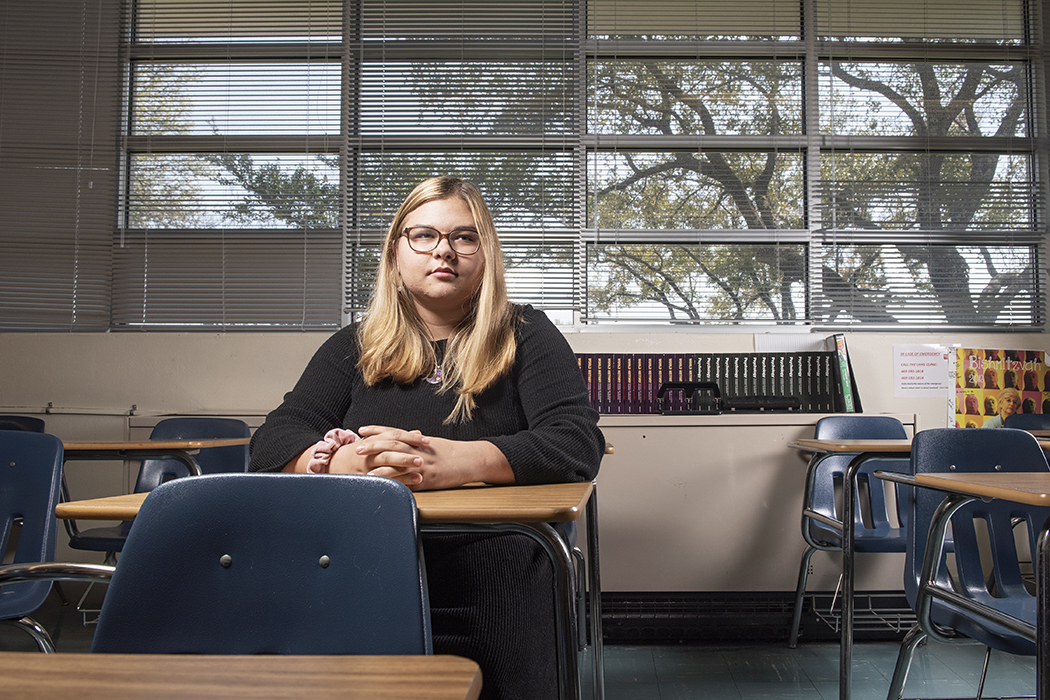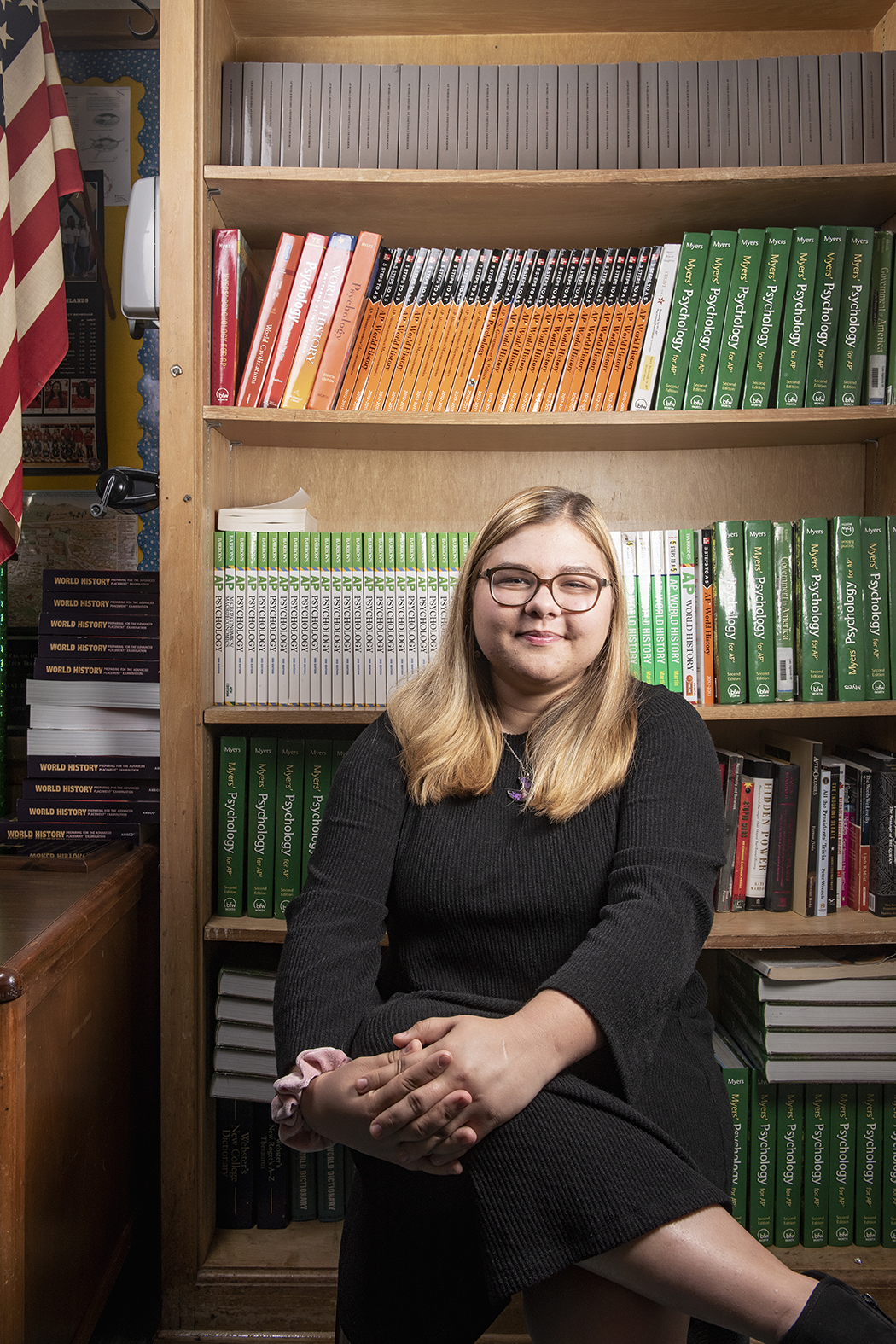
Photography by Danny Fulgencio.
When Bailey Powers was 10 years old, her parents struck a deal: They’d give her $100 if she’d stop coughing.
Bailey couldn’t control the incessant hacking sounds that escaped from her throat. She repeatedly ran into the bathroom and covered her face in a towel to muffle the noise.
Her family and teachers were convinced she coughed, squealed or cleared her throat because she craved attention. In reality, Bailey had a vocal tic disorder that she wouldn’t be diagnosed with until fifth grade.
At 18, Bailey has overcome a host of mental health issues and physical ailments: polycystic ovarian syndrome, anxiety, depression, obsessive compulsive disorder and excoriation disorder, or chronic skin-picking. Classmates have bullied her because of her appearance and beliefs.
“I don’t ever want anybody to feel that way,” she says. “I want to do as much as I can to help others feel accepted.”
Bailey’s compassion and confidence are striking when she talks about her accomplishments at Lake Highlands High School and her goals for the University of North Texas. Bailey is president of her high school’s third-wave feminist club, where she organized a coin drive for Genesis Women’s Shelter. Self-described as an intersectional feminist, Bailey defines her beliefs as “loving everyone equally and thinking everyone should have the same opportunities.” She joined the school’s Gay-Straight Alliance, and she was the only student who volunteered to give a presentation during Black History Month.
“There are some kids who don’t agree with me and think it’s a good idea to make fun of me or personally attack me. It’s not fun, but I’ve learned not to take it personally.”
Bailey is contemplating a career as a therapist at a juvenile detention center. She says counseling troubled kids appeals to her because they often don’t have access to needed mental health care.
“Here she is at 16, 17, 18, making major waves and doing it unapologetically and unafraid,” AVID coordinator Matthew Morris says. “There’s a fine line between confidence and humility that she navigates so gracefully in spaces … Looking at her, you realize this is a fireball. This is a force to be reckoned with.”
Bailey’s instincts to advocate for others haven’t always translated to her own well-being. Depression, anxiety and OCD have been an omnipresent part of her life since she was a preteen, she says.
OCD did not manifest itself as cleanliness or germaphobia as it’s commonly portrayed, she says. Bailey monitored the number of steps she took to be sure they were even. If she bumped her left elbow on accident, she’d do the same to her right elbow. Before a cross country race, she’d obsess over whether the tongues of her running shoes were straight.
Depression exacerbated when her father, a recovering alcoholic, relapsed.
“I started down a bad path where I was not thinking safe thoughts,” she says.
Bailey spent several days in the hospital for suicidal thoughts when she was a junior. She continued therapy when she was released. She acknowledges recovery is a process, but she’s learning how to cope with the hard days. She confides in her dad, who also sought treatment and has been sober for more than a year. Bailey prioritizes simple things that bring her joy, whether it’s watching a TV show at night or going thrift shopping.
She’s resilient, she says, and is determined that conversations about mental illness combat the stigma surrounding it.
“I’m most proud of myself that no matter what happens — just continuing to live and look forward to things.”

Photography by Danny Fulgencio.





